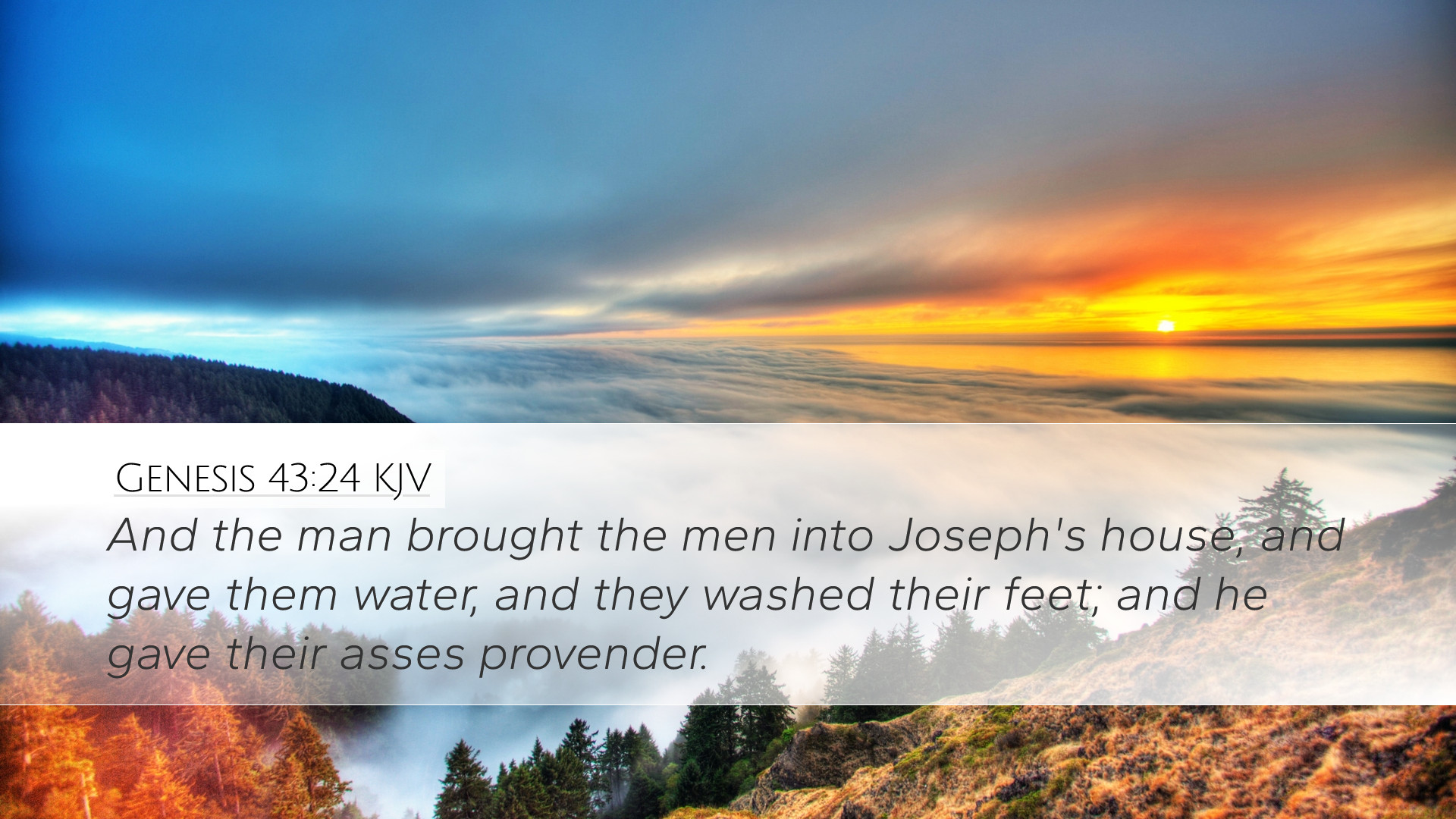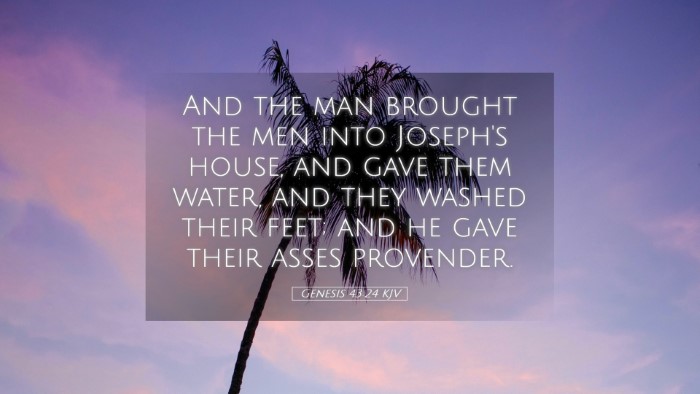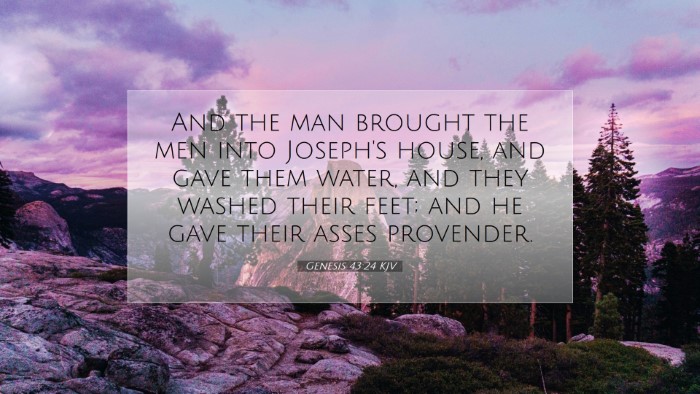Commentary on Genesis 43:24
Genesis 43:24 states, "And the man brought the men into Joseph's house, and gave them water, and they washed their feet; and he gave their asses provender." This verse marks a significant moment in the narrative of Joseph and his brothers, offering rich theological insights and reflections suitable for deeper exploration by pastors, students, theologians, and Bible scholars.
Contextual Analysis
This verse occurs within a critical juncture of the Joseph Story, particularly focusing on his brothers' second journey to Egypt during a time of famine. The background of this event highlights the themes of reconciliation, providence, and divine sovereignty.
Historical and Cultural Background
The act of bringing the brothers into Joseph's house and providing water and food is laden with cultural significance. In ancient Near Eastern hospitality, offering water and foot washing signified respect and a warm welcome.
-
Hospitality in the Ancient World:
As Matthew Henry notes, this action demonstrates that Joseph, despite being in a position of power, adheres to the cultural expectations of generosity and hospitality. This act sets a tone of mutual respect, starkly contrasting with the previous tensions between Joseph and his brothers.
-
Symbolism of Water and Foot Washing:
Albert Barnes points out that washing feet symbolizes both physical refreshment and spiritual cleansing. This detail might foreshadow the eventual reconciliation and the restoration of Joseph's relationship with his brothers.
Theological Reflections
This verse is not merely a narrative detail; it has profound implications for understanding God's providential care and the theme of reconciliation in Scripture.
God's Providence
Joseph's ability to control the situation reflects God's overarching sovereignty. Adam Clarke emphasizes that the orchestrating of events is indicative of divine providence in the lives of Joseph and his family. The act of providing for them shows God's faithful provisions in their time of need.
Reconciliation and Forgiveness
The hospitality extended to the brothers symbolizes the potential for reconciliation. This theme is central to the Genesis narrative and is pivotal in Christian teachings about forgiveness.
-
Joseph's Journey Toward Forgiveness:
Henry notes how Joseph’s actions, particularly his treatment of his brothers, mirror the Christian ideal of reconciliation. This verse reminds believers of the importance of humility and grace in the process of forgiveness.
-
Lessons for Personal Relationships:
Barnes observes that in our interactions with those who have wronged us, reflecting on Joseph's behavior can guide us in extending mercy and kindness as a pathway towards healing relationships.
Practical Applications
The insights gained from this passage can inform both personal faith practices and communal church life.
Building a Culture of Hospitality
Reflecting on Joseph's hospitality encourages Christians to foster environments of welcome and acceptance within their communities. Just as Joseph provided for his brothers, believers can embody Christ-like hospitality, demonstrating God's love through their actions.
Navigating Conflicts and Restoration
In the context of church dynamics, leaders and members are called to address conflicts and seek restoration. This verse serves as a reminder that even in strained relationships, there is an opportunity for grace.
Conclusion
Genesis 43:24 encapsulates a moment of hospitality that extends beyond mere welcome; it is rich with implications for understanding divine providence, the nature of reconciliation, and the importance of fostering a spirit of forgiveness. Both pastors and scholars are encouraged to explore how these themes can further inform their teaching and personal application of Scripture in a world that often struggles with division and conflict.
As this passage unfolds, it invites deeper reflection on how God's plans intersect with human actions, highlighting the transformative power of hospitality and reconciliation.


